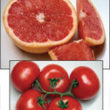Abrogation of survival diversity between Black and White men after USPSTF’s 2012 recommendation against PSA screening
The U.S. Preventive Services Task Force’s (USPSTF) guidelines against all PSA screening from 2012-2018 have had lasting adverse effects on screening rates, the features of prostate cancer at the time of diagnosis, and prostate cancer-specific survival rates. In the pre-USPSTF era, White men were less likely to die of prostate cancer, but this ceased to be observed in the post-USPSTF era due to a decreased survival rate among White men while the survival rate of Black men remained steady.
In a comparison of over 90,000 men in the national cancer registry (called the SEER Registry), in the post-USPSTF recommendation against PSA screening era, the percentage of low-grade (Gleason Grade < 6) decreased from 43% to 33%; localized tumors decreased from 82% to 76%; high-grade (Gleason Grade > 8) increased from 17% to 23%, and metastatic tumors increased from 5% to 8%). Moreover, the prostate cancer-specific mortality rate overall decreased significantly. The authors raise the hypothesis that racial disparities in prostate cancer survival may be affected by socioeconomic factors, as White men may have benefitted more from PSA screening in the pre-USPSTF era and, therefore, White men may have been compromised disproportionately by the Task Force’s 5-year ban on PSA screening for all men (see article on the History of PSA Screening on pages 1-3 and page 5).
Cancer 2020; 126:5114-5123

















